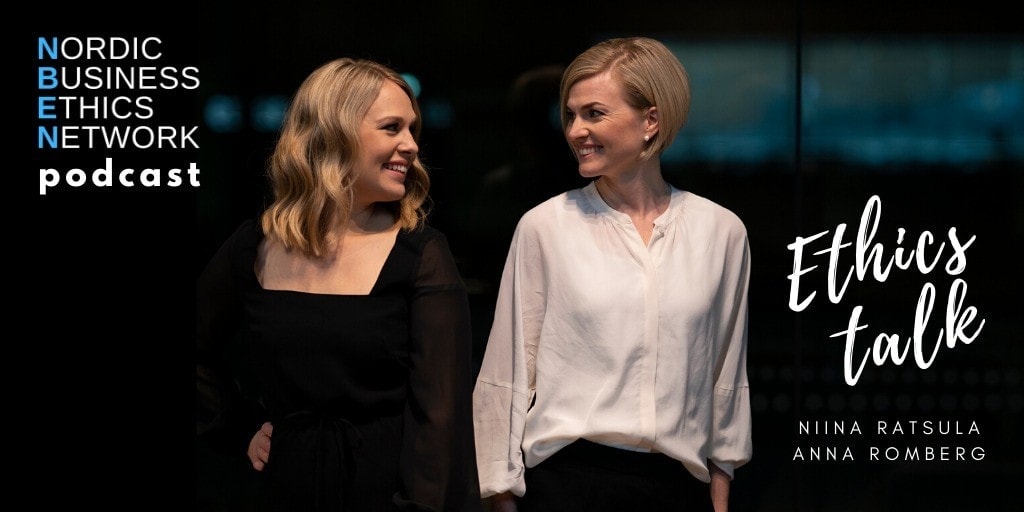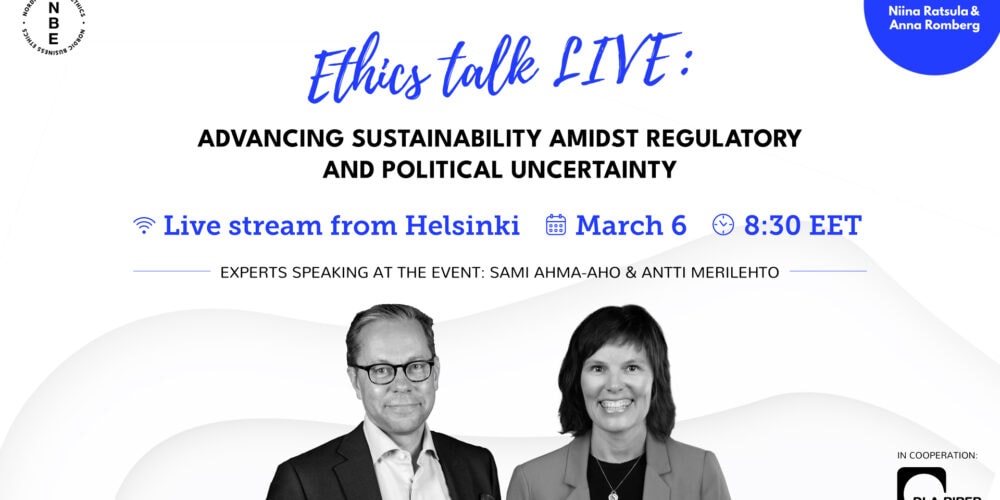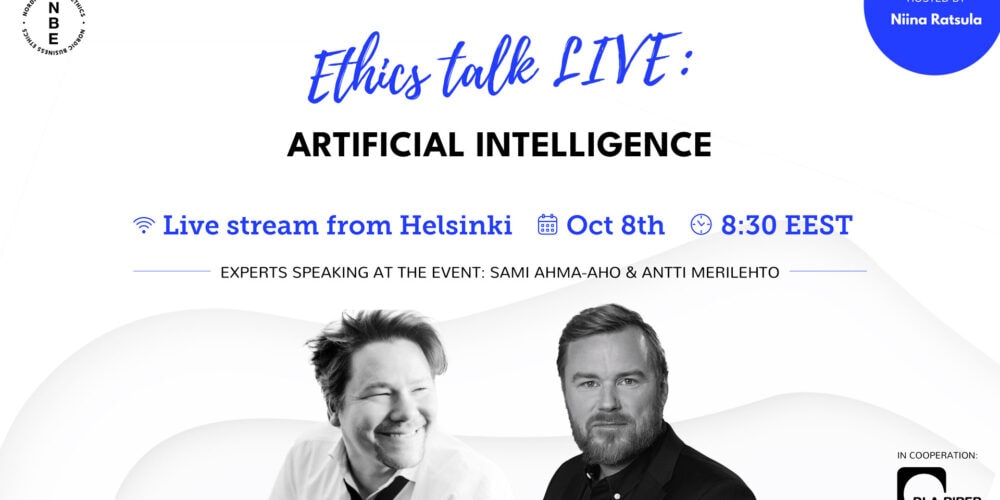Ethics Talk: Focus on LATAM
On February 3rd the Nordic Business Ethics Network arranged an event together with the Swedish Institute Against Corruption on the topic of the ongoing enforcement actions in Brazil, namely Operation Car Wash. We had the privilege of having the experts, Paolo Falcetta and Karla Lini Maeji joining the session to share their insights and experiences. In addition, we had two seasoned compliance veterans, Farzana Mohomed, Chief Compliance Officer at Maersk and Hema Lehocky, Chief Compliance Officer at AFRY, in the panel.
After the seminar we recorded an EthicsTalk podcast with Giovanni and Karla, summarising the main themes arising during the seminar and panel discussion. We apologise for the, at times, very bad sound quality due to a broken microphone. Nevertheless, we have posted the podcast here if you feel encouraged to listen. The main EthicsTalk discussion is also summarised here below. We hope you enjoy the podcast despite of the sound quality issues!
A never-ending story
The Carwash or Petrobras scandal originates from a criminal investigation into a money laundering scheme in 2014. During this investigation some links to Petrobras officials were noted which then gave the spark to unravelling a net of competition law, corruption and fraud violations across multiple industries. Some may have the impression that Operation Car Was is only about oil and gas sector, but today we see all sectors being dragged into investigations such as life science, finance, transportation, education and the energy sector at large.
What made this investigation spectacular is the amount of public and official information that there is available. As the investigation progress and more individuals enter into cooperation agreements and company into leniency agreements the more facts are brought to the table.
“If you want to enter into a negotiation with the authorities you have to bring in something new. It is not enough to admit to certain facts, but you have to point fingers and bring something new to the table as well” says Karla.
The authorities are committed to make this information public, for example the website https://infograficos.estadao.com.br/politica/operacao-lava-jato/?nucleo=&situacao=&partido= provides information on individuals and companies involved in the schemes. And companies are expected to understand their risk exposure.
How far back should you go to understand your exposure?
One thing that was discussed in the panel was the historical risk exposure and how far back in time a company should go to understand whether they are at risk. In theory, the statue of limitations for criminal conduct can span back 16 years in time. However, if the company continue to benefit from the conduct today one can argue whether the statue of limitations has even kicked-off.
One example that came up during the panel was Maersk, who in 2014 was alerted to some business deals through a broker that had made payments to Petrobras officials. For five years the company did not hear anything, and in December 2019 the were informed of that the authorities indeed had not forgotten the matter.
“We see this over and over again, the authorities are buried in information and it takes them a long time to go through everything. So one should not expect that the matter will go away. Eventually they will start investigating” says Giovanni.
If a company has implemented a compliance program, it provides a defense to the company. However, if you do not investigate red flags and public allegations it will be hard to argue that the program is effective. Looking into risks and red flags is a vital part of your program.
A scandal with global proportions
In Brazil there is no self-reporting obligation. However, what they authorities do expect, as part of the settlement negotiations is that companies commit to self-reporting in applicable overseas jurisdictions which self-reporting obligations. If a company refrain from self-reporting in e.g. the US the Brazilian authorities tend to view is as lack of cooperation and will be hesitant to enter into a settlement or leniency agreement.
And Operation Car Wash is by no means a local matter. Currently the Brazilian authorities has requested information from 61 other countries, and 39 countries have requested information from Brazil. Including most of the Nordic countries, with the exception of Finland. The authorities are truly showing an example of cooperation, both formally and informally. The OECD and US DOJ for example arrange formal gatherings and trainings to share knowledge and experiences. In addition, authorities are said to communicate informally in WhatsApp groups and share information real time.
Where next …
The investigation is nowhere from completed but continues to evolve, with new industries and jurisdictions becoming involved.
The common pitfalls for Nordic companies, based on Giovanni’s and Karla’s experience, relate to the lean, decentralised, trust-based operations. Nordic companies have a great appetite for exploring new markets and have a spirit of entrepreneurship where you want to go as lean as possible and then engage local expertise such as agents or local consultants. The local office is purely a sales office with no internal audit, no legal and no compliance function. And there is a risk for a superficial understanding of the risks and differences in ways of working compared to the home market.
“Companies tend to rely heavily on external auditors to go and check, but in the end the operations in Brazil are never material, and the audit will be limited in scope.” says Karla. “We see this pattern in many companies and with all the information we now have it is time to break this pattern. Companies need to start investing in compliance programs and in a real understanding of local risks”, says Giovanni
Our experts are however positive and believe that we will see a less corrupt Latin-America in the next five to ten years. There is a new generation coming, with a greater understanding of what corruption does to the society. In addition, companies are learning what the true risks and pitfalls are.



